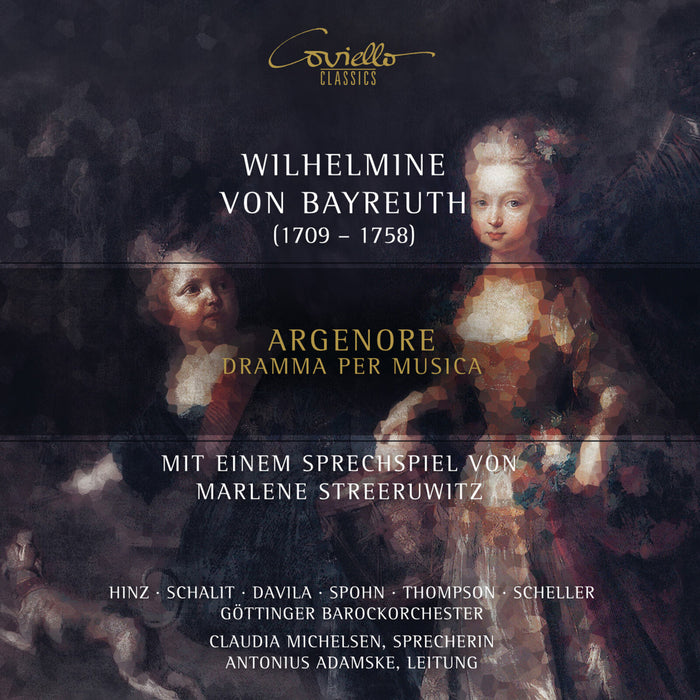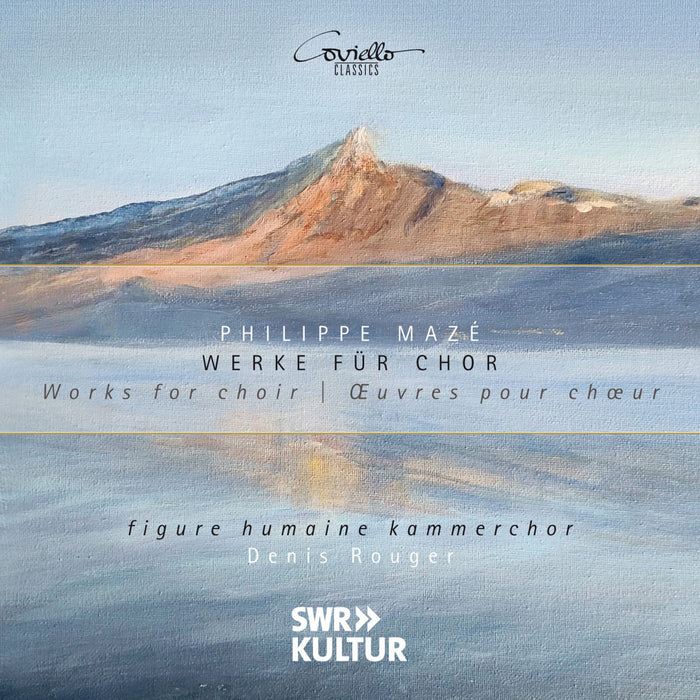Description
This new CD, under the direction of Antonius Adamske, presents the Christmas Cantatas of Schweinitz, Rudorff, Kummel, Forkel, and Kress; composers all of whom had great affiliation with the university at Gottingen, established in 1734.
The city of Gottingen is a good example of how science and art can mutually benefit each other: With the founding of the university there, a golden age dawned in the cultivation of music, with Johann Friedrich Schweinitz (1708-1780) being one of the protagonists. The Christmas Cantata is one of his greatest works, bears a strong resemblance to those of the first cantata of Bach's Christmas Oratorio, Jauchzet, frohlocket, auf, preiset die Tage. Schweinitz's successors expanded the stylistic spectrum, and so, supplemented by symphonic works, a colorful picture of Gottingen musical life on the threshold from the Baroque to the Classical era emerges here.
In contrast to Schweinitz, Carl Friedrich Rudorff's cantatas show a rich vein of melodic invention in various stylistic modes. The works Singet dem Herrn ein neues Lied and Erwachet zur Freude der Sterblichen Chöre represent small-scale cantatas for liturgical use and are through-composed.
The directorship of the university music had passed Georg Philipp Kress (1719-1779), who appeared however as a hapless figure in the regular performances of the academic concerts established by Schweinitz during his time as director of music there. The Kress' Overture in D Major, presented here, may possibly have been composed during Kress's time at the court in Schwerin, where he had previously held a post as "Premier-Violinist".
After Kress's death Johann Nikolaus Forkel (1749-1818) became director of the university music. Forkel managed an active exchange of letters with numerous eminent musicians of his time, among them, for instance, Carl Philipp Emmanuel Bach und Johann Philipp Kirnberger, published many works on music theory and lectured on music theory. His cantata Die Hirten bey der Krippe zu Bethlehem (1779), on a text by Karl Wilhelm Ramler (1725-1798), is a rather extended cantata for tenor and soprano soloists with a final four-part section.
Bernhard Christoph Kümmel (c. 1756-1836) never held a musical position in Göttingen. Kümmel had applied for the post of municipal cantor following Carl Friedrich Rudorff's death, but after several selection rounds he had withdrawn his application, literally at the last moment, so that his rival Ludwig Bötticher (*1756) was awarded the post. The short setting of the text Erhebet den Herrn was a mandatory part of the application procedure – Kümmel's composition is the only one of the three works submitted by the applicants to have survived.












